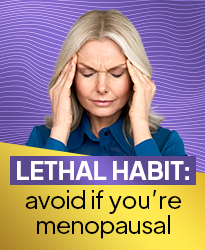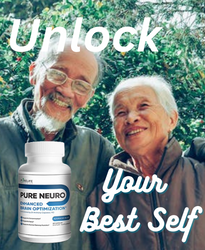Let’s talk about adrenal fatigue, a condition that’s become as popular as avocado toast and nearly as misunderstood. If you’re feeling perpetually tired, stressed out, and more wired than a hamster on an espresso binge, you might be wondering if your adrenal glands are giving you the cold shoulder. Spoiler: they are. Or at least that’s what adrenal fatigue is all about. So, buckle up for this wild ride into the world of tired glands and tired people, where we’ll untangle the mess of cortisol, coffee, and, of course, chronic fatigue.
The Glands of the Hour: The Adrenals
First, let’s introduce you to your adrenal glands, the unsung heroes (or villains, depending on how you treat them) of your body’s stress response. Perched on top of your kidneys like two little hats, these glands are responsible for producing a cocktail of hormones, most notably cortisol—the one you know as the “stress hormone.”
When you’re stressed, whether it’s from being late to work, dodging your neighbor who wants to talk about his ferret, or running from an actual bear (unlikely, but possible), your adrenal glands kick into action like firefighters on Red Bull. They release cortisol to help you deal with the stressor, ramping up your blood sugar and blood pressure so you’re ready to either fight, flee, or, if you’re really unlucky, freeze like a deer in headlights.
In a healthy scenario, your body handles stress, the cortisol does its job, and the adrenal glands can take a little break. But let’s be honest, when was the last time you just handled stress and moved on like a Zen master? That’s what I thought. Enter: adrenal fatigue.
What Is Adrenal Fatigue, Anyway?
Imagine your adrenal glands as overworked employees at a 24-hour diner. They used to be bright-eyed and full of energy, flipping pancakes and serving up cortisol like pros. But after years of constant orders—traffic jams, deadlines, too much coffee, not enough sleep—they’re starting to wear down. Eventually, they’re so exhausted they’re barely managing to pour a cup of cortisol without spilling it all over the place. This is adrenal fatigue.
The term was first popularized by Dr. James Wilson in 1998, though it’s not officially recognized by all medical communities (so don’t expect your GP to throw you an adrenal fatigue diagnosis on your next visit). Nevertheless, the symptoms are real for many people, and they go something like this:
- Chronic fatigue that won’t quit (even after 12 hours of sleep, which you never actually get).
- Craving salty snacks like they’re oxygen (seriously, you’d sell your soul for a bag of chips).
- Low energy, especially in the mornings and mid-afternoon (hello, 2 p.m. nap fantasies).
- Mood swings that would put a rollercoaster to shame.
- Brain fog that makes you feel like a goldfish with memory issues.
In short, it feels like someone swapped out your energy supply with a leaky battery. You’re constantly tired, constantly stressed, and even when you do relax, your body doesn’t seem to get the memo. So, what’s a person to do when their adrenal glands are waving the white flag?
Join Our Mailing List
Register now to get our hints and tips newsletter directly to your inbox
First Things First: Do You Really Have Adrenal Fatigue?
Before you start panic-Googling “adrenal fatigue cures,” let’s talk about whether or not this is actually what’s going on with you. If you’re feeling run down, there could be other culprits to consider: poor sleep habits, thyroid issues, iron deficiency, or just plain old burnout. And yes, adrenal fatigue can often be a part of that bigger picture, but you don’t want to go all in on one theory without doing some detective work.
If you suspect adrenal fatigue, check with a healthcare professional who’s familiar with holistic health or functional medicine. They might look at your cortisol levels through saliva or blood tests (since your cortisol follows a daily rhythm, like a hormonal DJ spinning different tracks throughout the day). You’re looking for a nice rise and fall of cortisol, like the perfect arc of a cat’s stretch. But in adrenal fatigue, it’s more like a wobbly line—too much cortisol when you don’t need it, and not enough when you do. Think of it as a hormonal identity crisis.
The Caffeine Conundrum: Your Best Friend (and Worst Enemy)
Okay, so your adrenal glands are exhausted, and what do you do? Grab a cup of coffee, obviously. You need that sweet, sweet caffeine hit to power through your day like a half-charged robot. But here’s the thing: caffeine is like pouring gasoline on a fire that’s already burning out of control. It gives you a short burst of energy, sure, but it’s borrowing that energy from your future self—specifically the you who will crash in spectacular fashion two hours later.
Caffeine stimulates your adrenal glands to release more cortisol, which is basically like asking your tired friend to stay up all night for a Netflix marathon. It works in the moment, but in the long run, it’s making everything worse. So, do yourself a favor and try cutting back on caffeine (yes, I know, this sounds like cruel and unusual punishment). Try herbal teas, matcha, or just accept that sometimes water is a perfectly fine beverage (even if it’s boring).
Sleep Like It’s Your Job (Because It Is)
If there’s one thing that can help your adrenals recover, it’s sleep. And I don’t just mean going to bed at 2 a.m. and expecting to feel fresh the next morning. We’re talking about quality, restorative, sleep-hygiene-approved sleep. This is the kind of sleep where you wake up and actually feel like you’ve been unconscious for a while, rather than just taking a quick catnap in the middle of a cyclone.
Here’s your sleep checklist:
- Go to bed at the same time every night, and yes, that includes weekends (you party animal).
- Make your room as dark as the Batcave—seriously, blackout curtains are your friends.
- Avoid screens before bed, because the blue light tricks your brain into thinking it’s daytime, which makes it harder for you to fall asleep. No doomscrolling Twitter at 11 p.m., folks!
- Wind down with something relaxing, like reading, meditating, or imagining what it would be like to live off-grid in the woods with no Wi-Fi.
The Role of Nutrition: What to Eat and What to Avoid
Your diet can make or break your adrenal health, so let’s dive into the buffet of options that can help—or hurt—your poor adrenal glands.
Foods to embrace:
- Healthy fats like avocados, nuts, and seeds. Not only will your adrenals thank you, but you’ll also be more popular at millennial brunches.
- Leafy greens are full of nutrients and help fight off oxidative stress. Think of them as the superhero capes for your cells.
- Protein, especially in the morning, helps to balance blood sugar levels and keep those cortisol spikes in check.
- Salt, but not in junk food form. Opt for sea salt or Himalayan pink salt, because your adrenals might need a little extra sodium when they’re fatigued.
Foods to avoid:
- Sugar and refined carbs. They give you a temporary energy boost but cause your blood sugar to crash, leaving you even more tired. It’s like giving your energy a 5-minute standing ovation and then booing it off stage.
- Processed junk food (yes, we know those chips are calling your name). These foods can trigger inflammation, which stresses your adrenals even more.
- Caffeine and alcohol. I know, this is the part where you wonder if life is worth living, but remember, this is temporary! Moderation is key while your adrenals get back on track.
Exercise: Less Is More
When you’re dealing with adrenal fatigue, your body’s energy reserves are about as full as your phone’s battery after a day without a charger. This means you need to be strategic about how you move your body. High-intensity interval training (HIIT) might be all the rage, but your poor adrenal glands will scream for mercy if you try to push them that hard.
Instead, opt for gentler forms of exercise like yoga, walking, swimming, or pilates. These activities keep you moving without triggering a full-on cortisol avalanche. And if you feel completely wiped out afterward, that’s your cue to back off. Let your body tell you what it needs—it’s like an internal GPS, but for stress recovery.
Wrapping It Up: Be Kind to Your Adrenals (And Yourself)
Adrenal fatigue might not be something you can “cure” overnight, but with the right lifestyle changes, your body will start to recover. Be patient, be kind to yourself, and give those adrenal glands the rest they deserve. After all, they’ve been running the show for a long time, and even the best workers need a vacation now and then!




